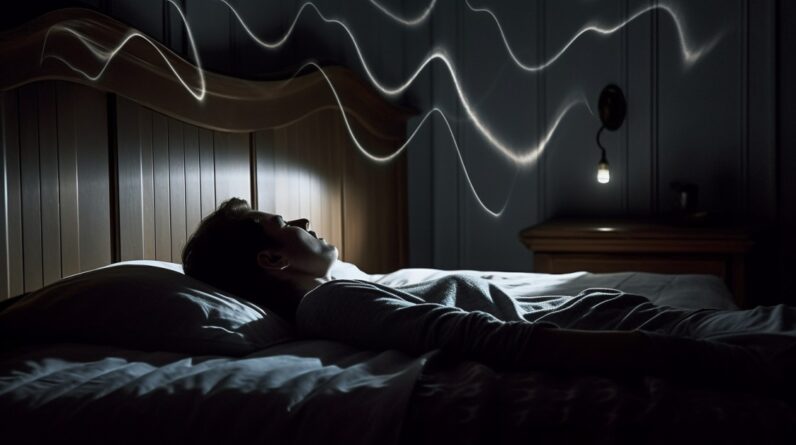
We may earn money or products from the companies mentioned in this post.
As an Amazon Associate I earn from qualifying purchases.
Table Of Contents
Introduction
Have you ever tried to clear your ears using a technique called ear syringing? It’s a common practice, particularly when dealing with stubborn earwax blockage. However, can such a seemingly mundane task lead to tinnitus, a disruptive condition characterized by a constant ringing or noise perception in the ear? This article aims to uncover the mysteries behind this topic and provide you with a comprehensive understanding of ear syringing, tinnitus, and their potential connection.
Understanding Tinnitus
At first, it may seem unsettling; a constant buzzing, hissing, or ringing noise that only you can hear. You’re not imagining it; it’s Tinnitus, a symptom of several possible underlying conditions, most usually ear injury, age-related hearing loss, or a circulatory system disorder. Tinnitus is perceptual, which means it’s a noise created by our brains that doesn’t exist outside of our perception. As per our question, can ear syringing lead to such a symptom?
What are Tinnitus sounds?
Tinnitus sounds aren’t the same for everyone. What sounds like a pesky fly’s buzz to one person may resemble the annoying static of an untuned radio to another. To understand why such a discrepancy exists, we need to look at the act that may possibly cause it — ear syringing.
Explaining Ear Syringing
Ear syringing, also known as ear irrigation, is a method of removing excess earwax, foreign materials, or debris from the ear. The procedure involves injecting a stream of water into the ear canal with a syringe to break down and wash out earwax. While generally safe, complications can arise, especially when not performed properly.
The Dangers of At-Home Ear Cleaning
An important note is to always practice caution when it comes to ear care. WebMD’s article on Ear Cleaning: The Do’s and Don’ts provides a comprehensive guide on what to avoid during at-home ear cleaning, also tackling the potential perils of incorrectly done ear syringing. So, with this knowledge at hand, let’s delve into the effects ear syringing can have, and the possibility of it causing tinnitus.
The Relationship Between Ear Syringing and Tinnitus
While ear syringing is a common method for cleaning our ears, it’s crucial to ask: Can Ear Irrigation Cause Tinnitus? The answer isn’t black and white. Generally, ear syringing is safe when performed correctly. However, the misuse or overuse of this procedure can potentially damage the delicate structures of the ear, leading to tinnitus.
Tinnitus After Ear Irrigation
Research data suggest that tinnitus can be a potential side effect of aggressive or improper ear syringing. How so? The unexpected force could potentially damage the eardrum or the tiny bones inside our ear leading to temporary or, in some cases, permanent tinnitus.
Symptoms of Tinnitus After Ear Syringing
People may experience Temporary Tinnitus After Ear Syringing. Symptoms could include a persistent ringing, buzzing, humming noise in the ear or in the head. Other signs may include a slight hearing loss or a sense of fullness in the ear. If you experience any of these symptoms after ear syringing, it is essential to seek medical advice immediately.
Tinnitus and Ear Syringing
Remember, tinnitus is not a disease but a symptom indicating something is not right in the auditory system. A certain percentage of people do report experiencing tinnitus symptoms after ear syringing, further highlighting the potential link between the two.
Risk Factors and Prevention
A few groups are more prone to suffer from tinnitus after ear syringing, including individuals with pre-existing ear conditions, elderly people, and those with chronic health conditions like diabetes.
The Role of Diabetes and Tinnitus
Diabetes, known to cause problems with blood circulation, can potentially lead to ear conditions including tinnitus, suggests this Does Diabetes Cause Tinnitus article. Thus, people with diabetes who undertake ear syringing may experience a higher risk.
Are Celebrities Who Have Tinnitus at Higher Risk?
Perhaps surprising, but yes. Celebrities are often exposed to loud noises which could predispose them to tinnitus. This Celebrities Who Have Tinnitus article offers more insights into this. So, those individuals who already have some degree of tinnitus may risk exacerbating their condition if ear syringing is performed inappropriately or too frequently.
Emphasizing prevention, it’s crucial to have ear syringing performed by a trained professional and avoid at-home procedures which could lead to unintended outcomes, including tinnitus.
Treating Tinnitus
Despite the distress that tinnitus can cause, it’s comforting to know that various treatment options for tinnitus can significantly help manage this condition.
Hearing Aid for Tinnitus
First off, a Hearing Aid for Tinnitus can be a considerable step in managing tinnitus. The principle is straightforward – by boosting the volume of external noise, the prominence of the tinnitus sound can be reduced. A hearing aid can help fill the sound void that occurs when you have hearing loss, often making the tinnitus less noticeable.
How Tinnitus Sound Therapy Works
Apart from hearing aids, another effective method for managing tinnitus is sound therapy. But how exactly does it work? Tinnitus Sound Therapy App effectively utilizes therapeutic sounds designed to reduce the perceived volume and intensity of the tinnitus, thus promoting a sense of relief.
CBT for Tinnitus: An Effective Treatment
Furthermore, Cognitive Behavioral Therapy (CBT) has shown impressive results in helping patients cope with tinnitus. Through this therapeutic approach, patients learn to change their perception of tinnitus and develop coping strategies. More on that on the Tinnitus Cognitive Behavioral Therapy page.
Conclusion
To conclude, if you often resort to ear syringing to clear your ears, you must be aware of the potential risk of developing tinnitus. This risk indeed appears higher if the procedure isn’t performed correctly or too frequently. While treatment interventions, such as hearing aids, sound therapy, and cognitive-behavioral therapy, can effectively manage tinnitus, it’s always best to focus on prevention.
Proper ear care is most often about professional ear cleanings and safe, smart methods at home. As the well-known saying goes, “Prevention is better than cure.” In understanding this, we empower ourselves to minimize risk while maximizing health.
Can Syringing Ear Cause Tinnitus
Frequently Asked Questions (FAQ)
Tinnitus is a condition where an individual experiences a persistent sound that’s not externally present. These perceived sounds can vary from a buzz, hiss, ring, or even a roar. The condition can occur due to various underlying health issues, including exposure to loud noise, earwax buildup, or even some medications.
Ear syringing, also known as ear irrigation, is a method commonly used to clear blockages in the ear canal, usually from a buildup of earwax. While generally safe when conducted by a professional, ear syringing can cause complications like infection or tinnitus, especially if performed incorrectly.
Yes, ear syringing can potentially lead to tinnitus, especially if performed incorrectly or too aggressively. The force of water could damage the eardrum or the tiny bones in the ear, causing temporary or even permanent tinnitus.
Any tinnitus arising after ear syringing should be evaluated by a medical professional as soon as possible. It’s important to determine if the tinnitus is temporary or permanent and to address any underlying conditions that might have caused it.
Several treatment options exist to alleviate the symptoms of tinnitus. These range from sound therapy and hearing aids to specific exercises and cognitive-behavioral therapy. In most cases, successful treatment requires a combination of these methods.
Amazon and the Amazon logo are trademarks of Amazon.com, Inc, or its affiliates.
No related posts.








